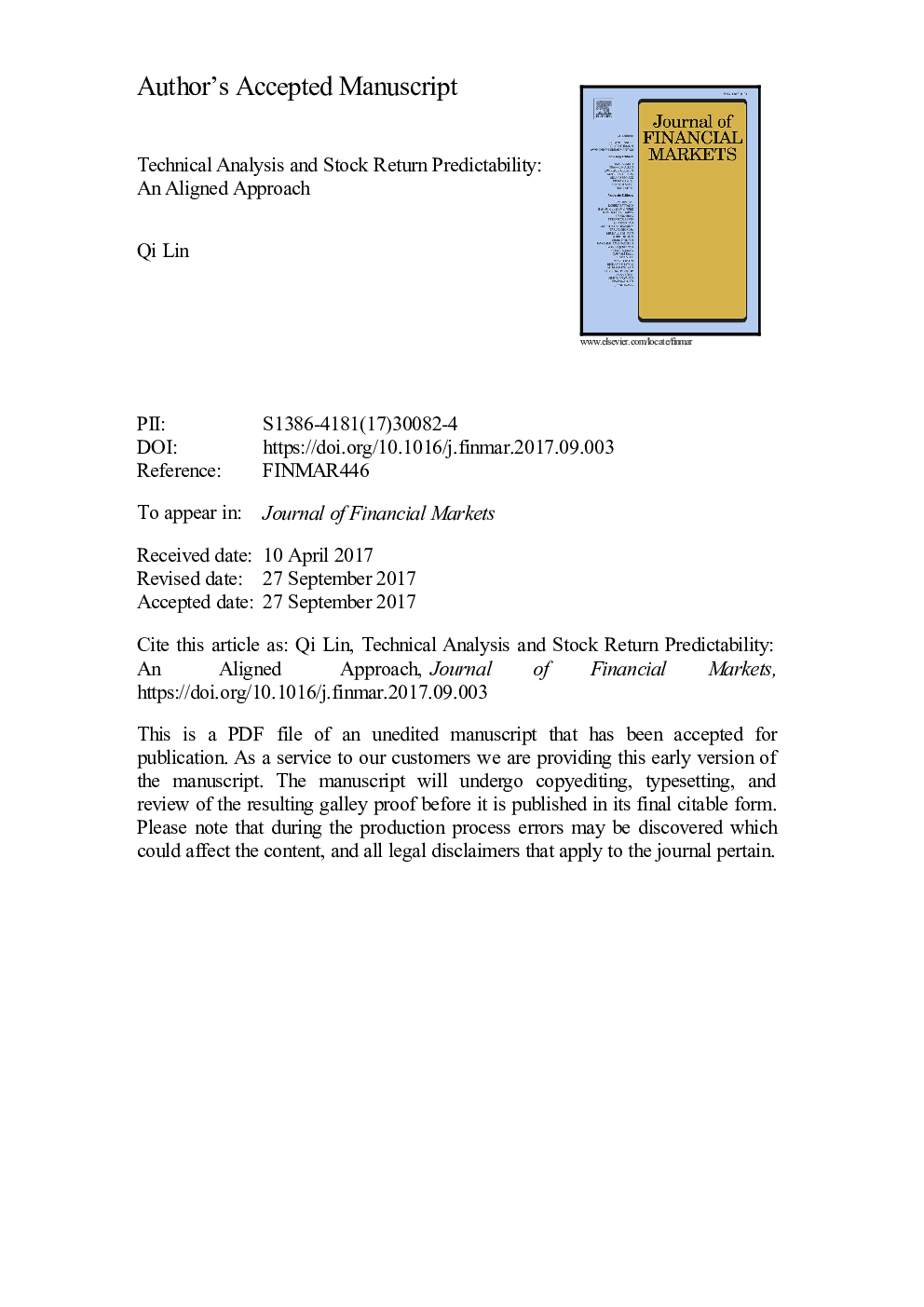| Article ID | Journal | Published Year | Pages | File Type |
|---|---|---|---|---|
| 7362439 | Journal of Financial Markets | 2018 | 68 Pages |
Abstract
This paper provides an empirical evaluation of the U.S. aggregate stock market predictability based on a new technical analysis index that eliminates the idiosyncratic noise component in technical indicators. I find that the new index exhibits statistically and economically significant in-sample and out-of-sample predictive power and outperforms the well-known technical indicators and macroeconomic variables. In addition, it can predict cross-sectional stock portfolio returns sorted by size, value, momentum, and industry and generate substantial utility gains for a mean-variance investor. A vector autoregression-based stock return decomposition shows that the economic source of the predictive power predominantly comes from time variations in future cash flows (i.e., the cash flow channel).
Keywords
Related Topics
Social Sciences and Humanities
Economics, Econometrics and Finance
Economics and Econometrics
Authors
Qi Lin,
